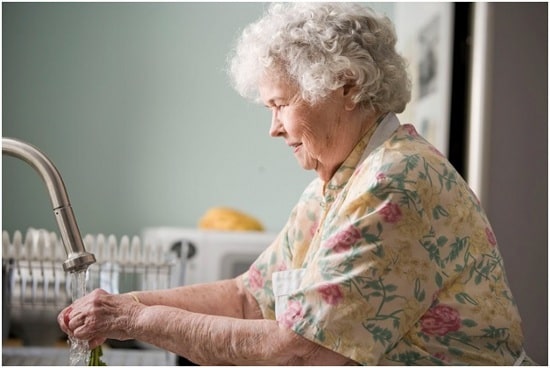A dementia or Alzheimer’s diagnosis isn’t just life-changing for the person diagnosed with the disease: It’s life-changing for the person who has to care for them, too. These are not conditions that can be taken lightly. Dementia makes it difficult for a person to be attentive and use their communication skills or reasoning. Alzheimer’s disease, the most common cause of dementia, is the sixth leading cause of death and has no cure. If your loved one has just been diagnosed, there are plenty of options and factors to consider as far as your role in their life.
Caring for parents with Alzheimer’s or dementia will undoubtedly affect how you live your day-to-day life. Because dementia and Alzheimer’s affect the brain, it may become difficult for your parent to think, remember, walk, or talk depending on the severity of the condition. And as the disease progresses, it will take a toll on their daily activities and yours. So, if you’re caring for parents with Alzheimer’s or dementia when you’re young, here are some tips you may want to know.
Do the required research and think about your options
Learn about what causes Alzheimer’s disease. Find any additional information on early-onset dementia and Alzheimer’s, as well as symptoms of the disease. Read about brain health and how these conditions affect long-term memory and behavioral symptoms. Then, assess your situation. Can you work from home a few days a week? Do you have enough time to complete your schoolwork on top of taking care of your parent? It would be best to look for a job or a program that can accommodate the reality of your new role as a caretaker. You have to learn to be more flexible as your mom or dad becomes more dependent on you in every aspect of life.
Assess the state of your home and make it safer for your parents
Whether it’s adding grab bars and night-lights or switching to an electric stove instead of gas, there are several areas of the home that need to be addressed. Does your bathroom have a walk-in shower, and is there enough lighting to see when it’s dark? Are all of the smoke and carbon monoxide detectors working? Are there any upgrades you and your family can make to prevent any potential trips or falls? Make sure to do the research on what you should or shouldn’t keep at home depending on the progress of the disease.
Don’t neglect yourself
Being responsible for someone can make it easier to neglect your own needs. But you have to prioritize yourself, too. Stay fit and eat healthy to prevent illness. Take some time away from being a caregiver, even if it’s just for a few hours. If you’re a high school student on your educational journey and searching for “college help near me” online, don’t put your college education on hold. There are plenty of college admissions services to help you get in. And you can even take online classes, which is a great compromise for when you’re pursuing higher education and still responsible for caring for your parent with dementia or Alzheimer’s.
You can’t do it alone
When you become someone’s caretaker, you should also get emotional support for yourself. Share the responsibility with the rest of your family and seek the advice of health care professionals. It’s also best to have emergency numbers within reach in case something happens. Talk to your family members about how you plan on caring for your parent. Figure out who is responsible when it comes to powers of attorney, finances, and other aspects of care.
When it comes to caring for parents with Alzheimer’s or dementia as a young person, don’t be afraid to ask for help. Your friends and family members are there for support, and you can also reach out to a professional to navigate caretaking for your parent every step of the way.




